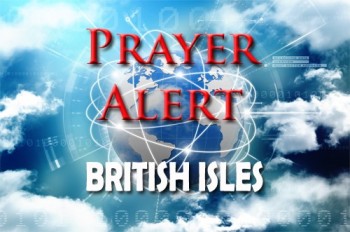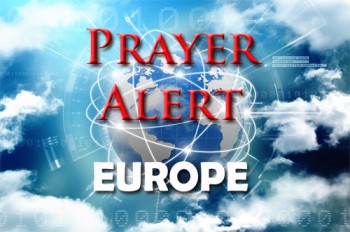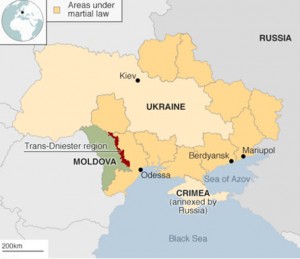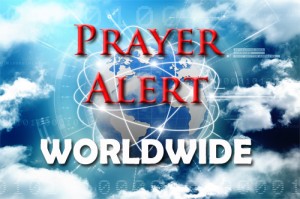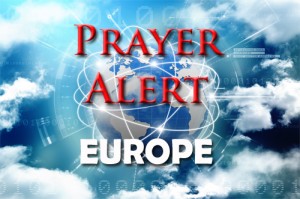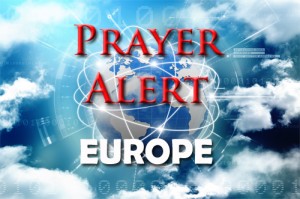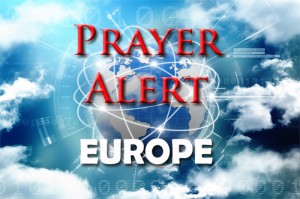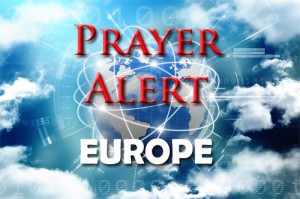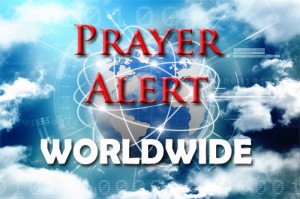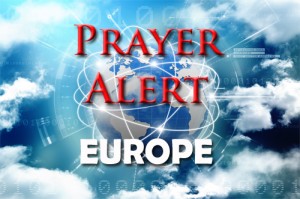Displaying items by tag: Russia
Facebook - suicide images - fake news
Matt Hancock, the UK health secretary, has called on social media giants to ‘purge’ material promoting self-harm and suicide, in the wake of links to teenager Molly Russell's suicide. They could be banned if they fail to comply. The 14-year-old took her life after viewing disturbing content about suicide on Instagram. Her father believed Instagram ‘helped kill my daughter’. Instagram owners, Facebook, said they were ‘deeply sorry’. The charity Papyrus, working to prevent youth suicide, had a spike in calls to their helpline after the BBC reported the link between suicide and social media. Meanwhile, Facebook removed 364 ‘fake’ pages (with 790,000 followers) for engaging in coordinated inauthentic behaviour as part of a network that originated in Russia. Facebook said the page administrators and account owners represented themselves as independent news pages or general interest pages, but all were linked to employees of Russian-owned Sputnik and the facts were false. See
Spread of sharia law
In some European territories sharia law is applied, challenging human rights. Greek Muslims in Western Thrace use sharia judicial power to rule on disputes concerning inheritance. Muslims can choose between a mufti or Greek courts. In the UK, the ‘Islamic Sharia Council’ is an independent arbitration tribunal issuing private law decisions and able to grant Islamic divorces. These divorces may also be included in a civil procedure. There are believed to be some thirty sharia councils, affiliated to local mosques. In Russia’s Northern Caucasus: family and property matters are usually judged under sharia law under the guise of ‘tradition’. Women and girls are victims of violence and discriminatory practices such as early marriage, abduction for forced marriage, ‘honour’ killings, female genital mutilation and polygamy, despite the provisions of Russian federal law. In Turkey Muslim religious education is compulsory in schools. The government publicly favours a Muslim viewpoint, linking Turkish nationality with Sunni Islam.
Ukraine - Russia Conflict - PRAY
Ukraine will not allow Russian men aged 16-60 into the country following the imposition of martial law, Kiev says. An exception would be made for "humanitarian cases" such as those travelling to funerals. Russia says it is not planning retaliatory measures.
Martial law has been imposed in 10 Ukrainian regions until 26 December 2018.
The move came as Ukraine's president expressed fears of a Russian invasion after Russian forces seized three Ukrainian boats and 24 sailors.
Ukraine said Sunday's incident in the Black Sea was a flagrant violation of international law, while Russia says the vessels violated its territorial waters.
It is the most dangerous clash at sea off Crimea since Russia annexed the peninsula from Ukraine in March 2014.
What did Ukraine say?
The restrictions were announced after President Petro Poroshenko met the country's top security officials, including border guard chiefs, in Kiev.
The president tweeted (in Ukrainian) that the ban was designed to prevent the formation of "private armies" in Ukraine.
He was referring to Russian-backed separatists who formed units in April 2014 to fight Ukrainian government forces in eastern Ukraine.
Mr Poroshenko also said registration criteria would be tightened for Russian citizens in the regions under martial law.
On Tuesday, he warned there was a threat of "full-scale war" with Russia.
"The number of [Russian] tanks at bases located along our border has grown three times," the president said.
Five of the 10 regions border Russia while two are adjacent to Moldova's breakaway Trans-Dniester region, where Russian troops are stationed. The other three regions border the Black Sea or Sea of Azov close to Crimea. (See article image courtesy of BBC)
The BBC's Jonah Fisher in Kiev says the ban could have a devastating impact on cross-border travel as the holiday period approaches. Many Russians have relatives living in Ukraine.
Reacting to the Ukrainian ban, Russian Foreign Ministry spokeswoman Maria Zakharova said Moscow was not planning "mirror" measures as this "could result in full madness".
Russia earlier said the 30-day martial law in Ukraine had been declared in order to potentially suspend presidential elections set for 31 March.
It said President Poroshenko - whose approval ratings have plummeted - would then be the main beneficiary.
Mr Poroshenko denies the claim, saying the polls will be held as scheduled.
Please Pray:
That the situation does not escalate.
That this long running situation can be diplomatically resolved.
That people will be able to travel freely across the border again, especially looking forward to Christmas.
For peace in the region.
Ukraine - prayer request
The Baptist Union is asking churches everywhere to pray for Ukraine, where martial law was imposed following a clash with Russia on 25 November in the Kerch Strait (a body of water separating the Black and Azov Seas). Ukraine’s navy reported three vessels being seized and sailors injured during the attack. The Ukraine parliament and the UN Security Council agreed to impose martial law, which will affect daily life drastically. At the time of writing President Poroshenko is urging NATO to send ships to the Sea of Azov, ‘to assist Ukraine and provide security’. Coincidentally, the UK defence secretary committed troops and the deployment of a Royal Navy ship to the Ukraine two days before this incident. He said it was a direct response to Russian aggression, adding, ‘As long as Ukraine faces Russian hostilities, it will find a steadfast partner in the UK’. See
Norway: NATO war games
NATO has launched its biggest military exercises since the end of the Cold War, amid rising tensions with Russia. About 50,000 soldiers from 31 countries are taking part in a mock battle in Norway, against an invading force named Trident Juncture 18. The battle is scheduled to run until 7 November. NATO secretary-general Jens Stoltenberg said the drills would send a clear message to ‘any potential adversary’. Washington is contributing the biggest contingent of troops to the exercises, which are taking place just weeks after Russia staged its own largest-ever military drills.
Crimea: eighteen students killed
Attacks by disaffected teenagers at schools and colleges have hit the headlines recently in Russia. In January, a student in Siberia attacked a teacher and fellow-students with an axe and set fire to the school. In April, in the Urals, another student stabbed a teacher and a student and set fire to a classroom. But this week’s tragedy of 18 school children killed and 53 injured has led to three days of mourning from 18 October. Speaking to journalists and parents of missing students in the city of Kerch, where the shooting took place, Crimean leader Sergei Aksyonov said the death toll stood at eighteen 14- to 16-year-olds, plus the killer Vladislav Roslyakov. Witnesses said they heard shots and ran into the corridor, where they were randomly targeted with a machine gun. Victims were taken away in buses and minibuses: ‘Children and staff, without legs, without arms’.
Russia: Putin’s popularity decreasing
A survey by the independent pollster Levada Centre shows the number of Russians regarding Putin as Russia’s most trusted politician has fallen significantly recently. The survey asked respondents to list five or six politicians whom they trusted the most. Although Putin was first with 39%, trust in him had fallen 9% since June and a total of 20 percentage points since November. He recently signed into law an unpopular bill that gradually increases the state retirement age to 60 for women and 65 for men. Most ordinary Russians are deeply opposed to the reforms, which sparked rare street protests across the country. Putin’s lowest-ever rating in a Levada poll came in 2013, when only 30% said he was a trusted politician. Then his popularity surged to over 80% after Russia annexed Crimea from Ukraine.
Russia cyber-attacks
Dutch military intelligence disrupted a Russian cyber-attack on the Organisation for the Prohibition of Chemical Weapons. The attack, which was thwarted with the help of British officials, came after Russia had also attempted remote attacks on on the UK Foreign Office in March and the Porton Down chemical weapons facility in April. Both attacks were unsuccessful. The Dutch defence minister said that four Russian intelligence officials from the GRU’s cybercrime unit, known as Sandworm, had been expelled from the Netherlands after being caught spying on the chemical weapons body in April. Jeremy Hunt said that a number of hackers widely known to have been conducting attacks around the world were covers for Russia’s GRU intelligence service, and their attacks had been undertaken with the consent and knowledge of the Kremlin. A Russian spokeswoman dismissed the hacking accusations as ‘big fantasies’.
Syria: war update
Several deals have been struck across Syria over the years of the civil war, but few have made significant differences. Pray that the agreement between Russia and Turkey to create a military buffer zone in Syria's Idlib holds fast and is successful in preventing further deaths as Syria’s last remaining opposition stronghold is included in a demilitarised zone. Turkey's foreign minister declared that only terrorist groups, not civilians, will be removed from Idlib province under the deal. EU spokesperson Maja Kocijancic stressed that the Turkish-Russian deal must protect civilians.
Putin: Novichok suspects not criminals
Many believe the Russian government hopes that a TV interview with the two men suspected of being spies and using Novichok in the UK will generate sympathy at home (see ). Putin says they are sports nutrition salesmen, not assassins. But the risk for Russia is that the interview raises more questions than it answers and offers more details for sceptics to unpick and challenge. The two suspects accused of carrying out the nerve agent attack claimed they had travelled to Salisbury to see its famous cathedral. The BBC reported that one of them said, ‘Maybe we did approach Skripal's house, but we don't know where it is located.’
